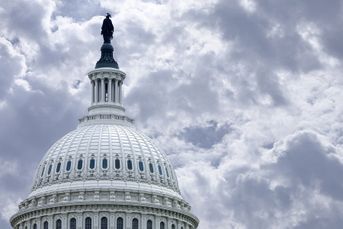Restore the tax deduction for advisory fees

During these challenging times, it is more important than ever that we protect and expand access to financial advice
In addition to the profound uncertainty we are experiencing today regarding our health and the well-being of our families, the coronavirus pandemic has created unprecedented volatility in many Main Street investors’ financial plans. Even with the recent rebound in the equity markets, investors are deeply concerned that the virus and its economic impacts will leave them unprepared for retirement and other goals, despite their years of saving and hard work.
During these challenging times, it is more important than ever that we protect and expand access to financial advice.
Unfortunately, in recent years, Americans have encountered an unnecessary roadblock standing between them and the professional guidance they need. In the Tax Cuts and Jobs Act of 2017, Congress repealed the limited tax deductibility for investment and financial planning fees that had made these crucial services more affordable for workers and savers across the country.
With job losses and market volatility causing many Main Street Americans to rethink their spending priorities, this repeal has had the unintended consequence of making investment and planning advice more expensive at a time when it is most urgently needed.
In addition, the repeal has created a disparity between business models. While investors who have fee-based advisory accounts can no longer deduct the cost of fees, the tax code retains a deduction equivalent for those who receive commission-based advice.
[More: Investors seek tax savings for fees they can no longer deduct]
We are working closely with our members to address this challenge, encouraging them to reach out to their representatives in Congress to restore the deductibility of financial advice. We have also joined a broad coalition that includes the Investment Adviser Association, the Certified Financial Planner Board of Standards Inc., the National Association of Personal Financial Advisors and the Financial Planning Association to ensure that our leaders listen to the voice of independent advisers and their clients on this issue.
What Congress should do
As elected officials on both sides of the aisle search for ways to put Americans on more solid financial footing, removing the unnecessary tax burden that currently stands as a barrier between clients and professional financial advice would provide an impactful, commonsense solution.
With this in mind, we ask Congress to restore this crucial deduction as part of the stimulus and emergency relief measures that are currently under consideration.
However, Congress should not stop there.
The deduction that existed prior to 2017 included an adjusted gross income threshold, meaning the deduction was only available if advisory fees exceeded 2% of an investor’s AGI. This threshold unfairly favored upper-income households, who typically have larger portfolios and may more frequently work with an adviser during the year, over middle-income investors. To help as many Americans as possible during this difficult time and beyond, the AGI threshold should be removed.
Restoring the deductibility of advisory fees is a timely and important measure that would drive real benefits for Main Street clients at a critical time for our nation. It would also ensure equal treatment of both fee-based advice and commission-based advice business models.
For the good of the country and the well-being of its workers and investors, we urge Congress to restore the tax deductibility of advisory fees today.
[More: FSI’s top advocacy priorities in 2020]
Dale Brown is president and CEO of the Financial Services Institute.
Learn more about reprints and licensing for this article.







